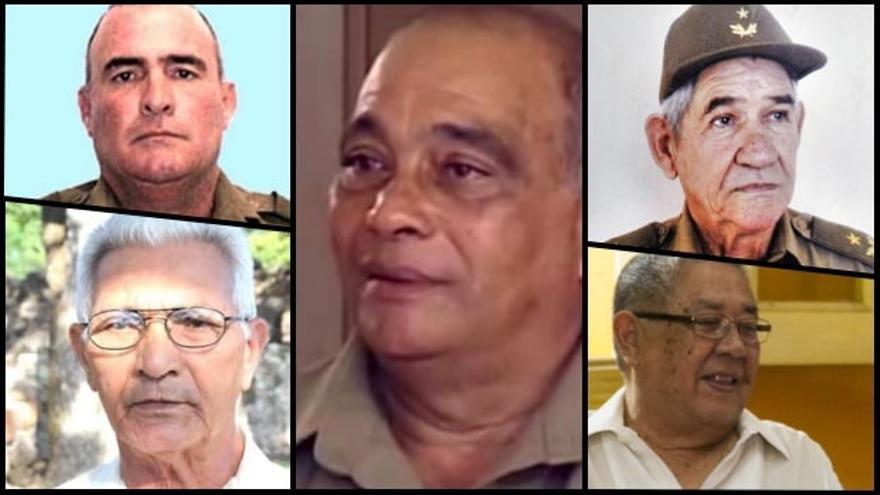
![]() 14ymedio, Ariel Hidalgo, Miami, 29 July 2021 — Although I am not a fan of conspiracy theories, I think it would be very necessary, to heal open wounds and put the accounts clear for history, to have a commission without political and ideological prejudices to investigate, seriously and professionally, many mysterious deaths reported in Cuba from 1959 to the present.
14ymedio, Ariel Hidalgo, Miami, 29 July 2021 — Although I am not a fan of conspiracy theories, I think it would be very necessary, to heal open wounds and put the accounts clear for history, to have a commission without political and ideological prejudices to investigate, seriously and professionally, many mysterious deaths reported in Cuba from 1959 to the present.
I am not referring to opponents such as the case of Oswaldo Payá, who although there is no conclusive evidence, it is generally presumed that he was murdered. Rather, above all, I’m talking about people from the regime itself. The list of “injured” or “suicidal” people would be very long, longer than a moderately informed reader would believe, and I will not be the one to list them. The task will be left to that future commission.
But what cannot wait, due to the relevance of the circumstances, are the successive deaths of five generals of the Armed Forces, one at the time, in just a space of nine days. I say five generals and I do not know if the number will increase by the date this article comes out. [As of 29 July the number is now six.]
The deaths began six days after the massive popular demonstrations took place on July 11 in nearly forty towns in the 14 provinces of the country, beginning on the 17th with Agustín Peña Pórrez, head of the Eastern Army, followed on the 20th; Marcelo Verdecia Perdomo, Brigadier General of the Reserve, then on the 24th; Rubén Martínez Puente, director of the Military Agricultural Union of the Ministry of the Revolutionary Armed Forces, on the 26th: Manuel Eduardo Lastres Pacheco, brigadier general of the Reserve, and on the same day, Armando Choy Rodríguez, brigadier general and general coordinator of the Group of History of the Las Villas Combatants.
All these deaths have in common that the causes of their deaths were not revealed and that their bodies were cremated immediately without receiving the honors normally given to high officials. The hypothesis that they were all of advanced age and that they probably died from the Covid, as some people disaffected to the regime have suggested, face some questions: Did they all agree to die in the days after the protests and the subsequent brutal governmental repression? How many generals died in the two weeks before the protests? Does anyone remember them? Were these five successive deaths a few days after the protests just by chance? Something that I have learned in these 62 years is that in the political world of Cuba there are no coincidences.
I do not affirm anything, but these deaths are very similar to the purges that were carried out in Stalin’s Russia. He executed so many Red Army generals that he later found himself in a tight spot when Nazi troops invaded the Soviet Union. If this is the case in Cuba, obviously it would have to do with those events that occurred in the previous days.
In the first place, we must take into account what it must have been like for many of those who dedicated their lives to defending that regime, to realize that the vast majority of the people, for whom that “revolution” was supposedly carried out, repudiated that regime.
It was not a demonstration in a neighborhood or in a town, but in all of Cuba, and they were not demonstrations of 20 or 30 people, but of hundreds and thousands in each of those populations.
And second, it must have been shocking for many of those high officials to see the repression so brutally carried out against the people, first in the streets and then in the homes, house by house, to violently remove people who were presumed to have participated in the protests.
The soldiers of the Revolutionary Armed Forces have not had a history of repression against the people as has the Ministry of the Interior and, in particular, State Security. It has been said that one of those generals was the one who gave the order to shoot down the Brothers to the Rescue planes in 1996. In reality, the one who gave that order was Raúl Castro according to the wish of his brother-in-chief, and the pilots were very well chosen: the stepchildren of Wilfredo ’Felo’ Pérez, the one who piloted the plane that fell in Barbados by a bomb allegedly planted by the enemy.
That in the present circumstances a soldier or a sergeant expresses concern about the demonstrations and repression and thinks that changes should be made could get him fired, but that a general does so, with the influence he can exert on his troops, can be considered as treason.
Commander Húber Matos, when he was still at the head of the rebel troops in Camagüey, served 25 years in prison for asking for the leader’s resignation. They simply, could have replaced him, since he had the support of the people at that time, and yet they did not take that risk. Now, with the regime’s weakness, do they have the luxury of letting it go.
So it will not be at all strange that high officials continue to die for unknown reasons.
____________
COLLABORATE WITH OUR WORK: The 14ymedio team is committed to practicing serious journalism that reflects Cuba’s reality in all its depth. Thank you for joining us on this long journey. We invite you to continue supporting us by becoming a member of 14ymedio now. Together we can continue transforming journalism in Cuba.
